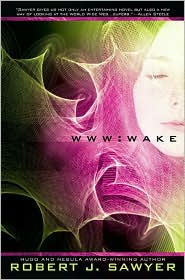 After a very, busy week following my appearance at WisCon 2009, I felt it was time to sit down and share my philosophy toward other writers, readers and critics. In the past, two weeks I’ve met more new people on-and-offline than I have in the past year. Since many people are unfamiliar with me and my work, I thought it best to put into words that which I feel so passionately about…
After a very, busy week following my appearance at WisCon 2009, I felt it was time to sit down and share my philosophy toward other writers, readers and critics. In the past, two weeks I’ve met more new people on-and-offline than I have in the past year. Since many people are unfamiliar with me and my work, I thought it best to put into words that which I feel so passionately about…
I believe that both readers and critics, regardless of education or background, have a right to their informed opinion. By “informed,” I mean I would hope they’d read a book before providing an in-depth dissertation about it. Sometimes, I am amazed how deep that rabbit hole of criticism goes. Sure, I have opinions about the books I read (and admittedly a few popular ones I haven’t) but that doesn’t mean I don’t recognize how valuable all books are. Even though I might not like a particular story, it might appeal to someone else. In my mind, that’s a win-win scenario for literacy because it means that there’s a story for everyone.
When it comes to my own work, I know that what I write may not appeal to everyone. No one likes crappy reviews or readers trashing their work, because even though writing is a “job” (e.g. you often get paid) it is also an extension of yourself. Immutable and defined, a writer’s published work becomes a testimony not only to the voices we hear in our heads, but the whispers we hear through the trees, in rush-hour traffic, or on the beach.
Writing often gets depicted romantically, as if being an author means that you have finally reached a utopia in which the entire world bows at your feet for your brilliance, your personality and your creativity. Nothing — and I mean nothing — could be further from the truth. Creativity, in any form, comes with a price because creative people think differently from non-creative people. Different for me meant “not like everyone else,” which led to a lot of confusion, personal angst and career building frustration until I started meeting other writers.
Although I have a college degree in writing, it wasn’t until I fell into the gaming industry that I truly felt welcomed. Professional authors and game designers welcomed me as a “new” writer, even though they had no real reason to do so. Their kindness shocked me, because in my past almost everyone I knew viewed other writers as “competition.” This harsh attitude had affected me deeply: for a number of years I was very bitter and negative about anyone else’s success, yet arrogant about my own. I’m sure you can imagine my surprise when I was not only showed compassion and understanding by perfect strangers, but leads and writing assignments as well.
I’ve been a part of the gaming industry now for six or seven years, and I have not forgotten what a difference positivity makes. A single conversation over beer was the catalyst that helped me transform bitterness into positive energy. It is my hope that I can bring that same kindness that was shown to me by having a supportive presence on-and-offline for other like-minded writers as my time permits.
Part of my long-term goal is to be a novelist (either part-time or full-time), and admittedly I don’t know if that will ever happen. Regardless, it is my belief that celebrating someone else’s successes is just as important as cheering for your own. Only through a sense of togetherness will we build a creative community that supports and helps one another.

 But I’m not writing this letter to talk to you about why writing is “difficult” or why it’s “important.” No, I’m putting these words together for an entirely different reason. You see, the path you take to becoming a successful writer really has three trails that intersect with one another. The first trail is the one that led you to your decision to write — whether that be “just” a short story or a blog post, that’s what started you on the path.
But I’m not writing this letter to talk to you about why writing is “difficult” or why it’s “important.” No, I’m putting these words together for an entirely different reason. You see, the path you take to becoming a successful writer really has three trails that intersect with one another. The first trail is the one that led you to your decision to write — whether that be “just” a short story or a blog post, that’s what started you on the path. 